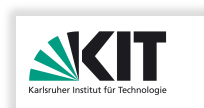Titelbild/jpg
Zusätzlich als E-Book verfügbar: ISBN 978-0-429-44264-3, ab £ 15.00
 Titelinformation des Verlags:
Titelinformation des Verlags:Technological advance affects almost all areas of human life. Rapid digitization, increased mobility, new biotechnologies, and 0nanotechnology deeply influence, amongst others, industrial production, entertainment, work, military affairs, and individual life. Besides overwhelmingly positive effects on wealth, comfort, innovation, and development, this also raises questions of unintended effects, of tensions with democracy, of the role of citizens, and of its sustainability facing environmental issues. Tools and procedures are needed to cope with this challenging situation. Technology assessment (TA) has been developed more than fifty years ago to enable science, the economy, and society to harvest the potential of new technology to the maximum extent possible and to deal responsibly with possible adverse effects. It was developed more than 50 years ago in the U.S. Congress and has diversified considerably in the meantime. Parliamentary TA in many European states and at the international level, participatory TA at the local and regional levels worldwide, and TA as part of engineering processes are the most relevant fields today. Technology assessment is a growing field of interdisciplinary research and scientific policy advice. This volume (a) gives an overview of motivations of TA, its history and its current practices, (b) develops a fresh theoretical perspective on TA rooted in social theory and philosophy, and (c) draws conclusions from the theoretical perspective for the further development of TA's practices. It provides the first comprehensive view on the growing field of TA at the international level.

